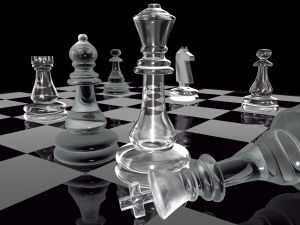
 The only psych classes I had were on the minds of children, so the idea of mental flow and how to harness it fascinates me. Defined, mental flow is that state of deep concentration when the conscious mind stops telling you why you can't do something and lets the rest of your mind and body get it done. Finding flow is essential to any creative pursuit and the secret ingredient to being a successful professional.
The only psych classes I had were on the minds of children, so the idea of mental flow and how to harness it fascinates me. Defined, mental flow is that state of deep concentration when the conscious mind stops telling you why you can't do something and lets the rest of your mind and body get it done. Finding flow is essential to any creative pursuit and the secret ingredient to being a successful professional.
According to Daniel Goleman, author of The Meditative Mind, there are five key elements to mental flow:
1. Merging of action and awareness in sustained concentration on task at hand
Counting on flow to just happen is like waiting for the migration of a rare butterfly. Make a conscious effort to create an environment where flow is more likely and know what those cues are in yourself. Some walk in nature for twenty minutes. Professional race car drivers participate in elaborate rituals before taking to the asphalt at 200 miles per hour. Become a creature of habit.
2. Focus of attention in a pure involvement without concern for outcome
Goals must be clearly defined, either consciously or subconsciously, but being overly-concerned with the end product is a barrier to creativity. Extreme deadline stress can be crippling because it doesn't allow the superego, the one who controls self-criticism, to step aside.
3. Self-forgetfulness with heightened awareness of the activity
Giving yourself permission to drop away for a time is important. Flow typically happens after fifteen minutes of uninterrupted study, but can be lessened with the right techniques. If you're having trouble accessing that part of yourself or you thrive on a sense of control, try twenty or thirty minutes of meditation once or twice per week. With practice, you'll find that superego suppressed enough that you'll be able to step in and out of flow easily.
4. Skills adequate enough to meet the demand
Without knowledge for the subconscious mind to draw from, flow is impossible.
5. Clarity regarding situational cues and appropriate response
Situational cues can guide reaction. This is especially true of athletes and other professions where the physical body is the primary instrument for success.
Here are some ways to increase mental flow:
*The shorter the lag time between flow sessions, the more likely you'll be able to access that zone.
*Hunger and excessive fatigue kill flow. Power up with the right body fuel and come to the session rested.
*Phone calls and shared workspace are enemies. This is the primary reason everyone at Microsoft has their own office. Workers do not go into each other's space. Email is the primary means of communication because it's non-invasive and can be attended to when flow drops away.
*Find out the time of day when flow comes easier to you. Schedule less creative tasks during alternate times.
How do you find your flow?
I agree with all these points. Adn too many of us actively work against our flow by, when we just get started going we stop for a snack or to check email, and it disrupts the process. I've been guilty of that myself. Sustained concentration is hard work.
Excellent post LA, and it comes at a good time for me as we're facing a lot of exhausting stress in the family.
I need to step back and redefine my boundaries and reestablish my rituals - and get back in the habit of accessing a daily flow
Very interesting, L.A. You're giving me way too much food for thought. I prefer routines and schedules but live in a houseful of pantsers. Getting four other people to cooperate seems a herculean task some days.
But with school going back in session, there will be some forced rituals and schedules, so there's still hope.
Jen
Hello LA. I love this post.
I am a martial artist and chi kung meditation teacher of many years, and it was so refreshing to see a write-up where the beneficial aspects of "flow" are brought foward for writers. There are many names for the state you're describing and many disciplines to achieve it. The elements you've posted were great guidelines.
My eldest teacher was an old chinese man who firmly believed that the creative state could be prompted by judicious use of chocolates. "There is no great literature," he once told me, "without great chocolate." He also taught me that there can be no flow or creative state for individuals who ate too quickly. "The mind hides from food that is inhaled instead of eaten."
Anyway, I'm going to email the link to this post to as many creative people as I can dredge up emails for- it's too valuable not to be passed along.
This comment has been removed by the author.
Charles...I do that, too. What are we thinking?
Sue and Jen...I hope things settle down for you both soon.
vwriter...I am SO loving your eldest teacher. Anyone who can justify a chocolate experience as a supreme state of awareness speaks the same language as me 🙂 Thank you for lending your expertise.
L.A., I should have read your post before I tried to get work done today... I keep trying to put pressure on myself to "just concentrate" and, as you and Daniel G. pointed out, that sense of flow can't be forced.
Ah, well. I'll be taking vwriter's eldest teacher's advice and hunting down some chocolate. Anything to help the creative process :).